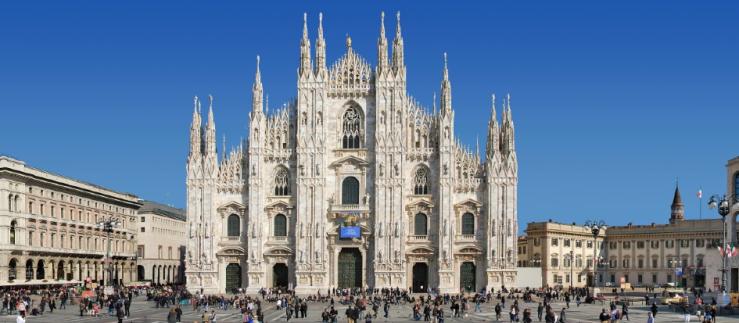The issue
Our experience shows that while SMEs already struggle with customs compliance in their global supply chain, they often struggle even more with export controls as well as embargo and economic sanctions regulations. These cover dual-use goods that can have a civil or a military use, and other product-related export restrictions that may require official export licenses – as well as commercial activities with countries, entities or individuals under sanctions.
Customers increasingly request certification of products from their suppliers according to various regulations (e.g. EAR and ITAR). In addition, customs and freight forwarders expect that companies declare materials that are subject to export licenses. Furthermore, sanctions are subject to constant change and regulations vary from country to country (e.g. sanctions against Iran differ in their application in the USA from that in the EU and Switzerland). Another important aspect are regulations that have an extraterritorial scope. Multinational companies and companies with international business have to consider compliance with foreign laws (e.g. US or EU regulations both have an extraterritorial scope).
In essence, you must ensure your export shipments comply with national – and in some instances with foreign – export controls and sanctions legislation. To do this you need to recognize the regulations applicable to each transaction and the obligations that derive therefrom. This entails:
- understanding what you are shipping and its origin to determine product restrictions;
- identifying if the country where you are shipping to is impacted by restrictions due to economic sanctions and what these are;
- checking that who is involved in the transaction is not on a sanctions list (importer, bank, freight forwarder, end user, etc.);
- ensuring that your product will not be diverted to another destination/end user where export controls or sanctions apply – and that its end use will not be linked to a weapons programme (catch-all clause).
The risks – and today's attitude
As the consequences of non-compliance can be far-reaching and highly critical, the viability of an entire business and its supply chain may be threatened. For example, a sea-going vessel that is officially blacklisted will be greatly restricted for commercial chartering and claiming of port services or a blacklisted company depending on US electronics, software or avionics for its finished products will be impacted if it can no longer source these products.
Given the severe penalties levied against companies and the personal liability of the board and the executive management, SMEs tend to focus more on complying with export controls, embargo and sanctions regulations, whereas this used to be more of a priority for larger groups. Moreover, companies have to consider that the potential consequences of breaches also include reputational damage, strained commercial relationships with clients and suppliers, ending up on the Specially Designated National and Blocked Persons List, freezing of assets or the inability to do business with certain economic partners (e.g. limited access to the US financial system and USD payments).
There is an emerging tendency to no longer consider regulatory compliance as a “necessary evil” or “money down the drain” but as a competitive differentiator positioning the compliant company ahead as a proactive role model – thus allowing the regulator to concentrate his efforts on companies that have not yet reached this status.
Trending leaders adopt a “can do” attitude as they are convinced that engaging in international trade with a culture of governance, risk and compliance (GRC) will lead to smoother commercial and logistics operations, limit the friction of fines and criminal penalties as well as project a positive public image.
Today, addressing the problem with a risk-based and cost-effective compliance programme generally outweighs a “wait and see” reactive approach.
Who should be concerned?
The following industries and sectors are particularly exposed to export controls and generally should take measures in this respect as part of the normal course of business:
Aerospace, defense, automotive, marine, machine, electronics, telecommunications, software, energy, metallurgical, chemical & life sciences, tech start-ups, transport & financial services, and academic institutions.
What do companies have to consider?
Based on our experience, companies should consider the following questions in order to gain control and ensure adequate governance of export controls, embargo and economic sanctions regulations:
- What are my company-specific and industry-specific risks (risk assessment)?
- Are the implemented organizational measures and lines of communication management sufficient (tone from the top)?
- Do we have appropriate policies and procedures in place to mitigate our risks?
- Are our staff correctly trained?
- Do we track the evolving risk landscape?
- How do we remain on top of sanctions updates?
- Has internal audit reviewed our organization regarding compliance with export controls, embargo and sanctions regulations?
- Do we have a procedure in place to detect restricted products?
- How do we monitor our export processes and ensure timely availability of the appropriate export licenses?
- What safeguards do we have in place for compliance with sanctions regulations?
- How automated are we concerning our trade compliance processes?
- How do our staff control related master data?
- How does management ensure the overall governance system is dynamic and that changes are monitored, analysed and reflected in our governance (e.g. policies, procedures)?
Conclusion
If you follow this methodical approach, from identifying your risks to structuring a right-sized trade compliance organization with essential roles and responsibilities, a trade policy and processes defined, you will have already come a long way. From an export controls and sanctions perspective, this means determining and tracking your restricted products, assessing exports to sanctioned destinations, screening your customer and supplier base against sanctions lists and managing export licenses whenever necessary.







